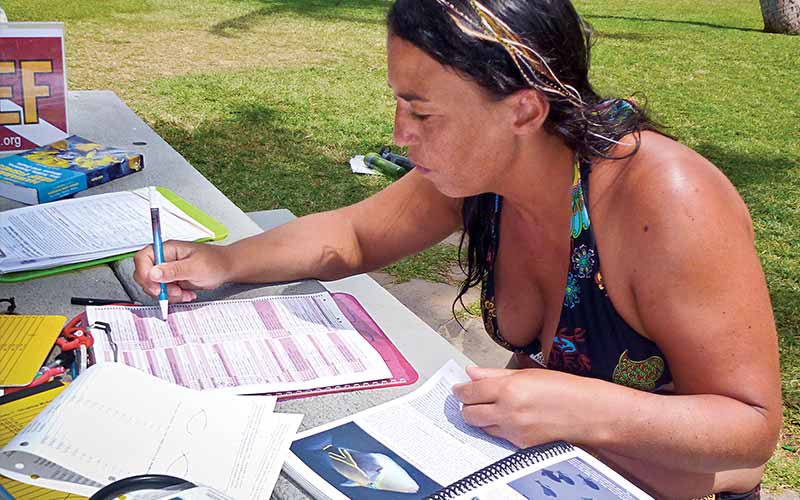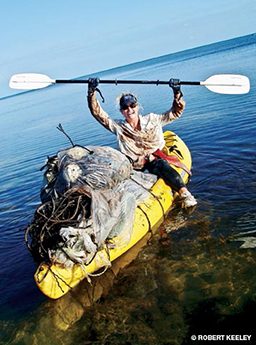It was summertime on a liveaboard in Belize; the air and water were warm, the clear blue Caribbean beckoned, and all we wanted to do was dive. And dive we did, doing multiple dives a day with delicious meals and snacks in between, not to mention all of the great conversations and good friendships that develop on liveaboard trips. But there was also something new for me on this particular trip.
On that trip in June 2009, we were doing a field survey for the Reef Environmental Education Foundation (REEF) to gather information on the lionfish invasion. The fish census we conducted continues to provide a baseline from which REEF helps determine the impact of lionfish on the marine environment of Belize and the Caribbean. That trip was the best of two worlds: We were diving a great destination while contributing to the science and knowledge that will help preserve the oceans we love. It was a textbook example of voluntourism.

The website www.voluntourism.org defines voluntourism as the “conscious, seamlessly integrated combination of voluntary service to a destination and the best, traditional elements of travel — arts, culture, geography, history and recreation — in that destination.” This concept of exploration combined with philanthropy strikes a chord in many: Voluntourism has become increasingly popular within both the diving and general travel communities over the past decade.

Voluntouring opportunities abound for scuba divers. An Internet search can provide information on a wide range of chances to help and dive, from working at local aquariums to gathering research data on dive trips around the world.
The work is often performed for nonprofit organizations that rely heavily on the efforts of volunteers to meet their program goals. “Volunteers make up the mainstay of our programs,” said Lad Akins, special projects director for REEF. “We have a dedicated but small staff, and the many thousands of volunteers who travel to project destinations allow us to collect the volumes of data that have made our programs so successful. Without our volunteers this data simply would not exist.”
Sometimes volunteering consists of a dedicated task, such as conducting fish counts or other data collection, while other opportunities require only the sharing of your experience, such as downloading dive profile data for use in DAN’s research.
You don’t have to sacrifice a great time to make a difference. Get started. Do some research, and contact the projects or tour operators that appeal to you. Whatever your underwater interests, a voluntourism opportunity exists to combine your love of diving with the desire to contribute to science and society.
© Alert Diver —Q3 Summer 2011